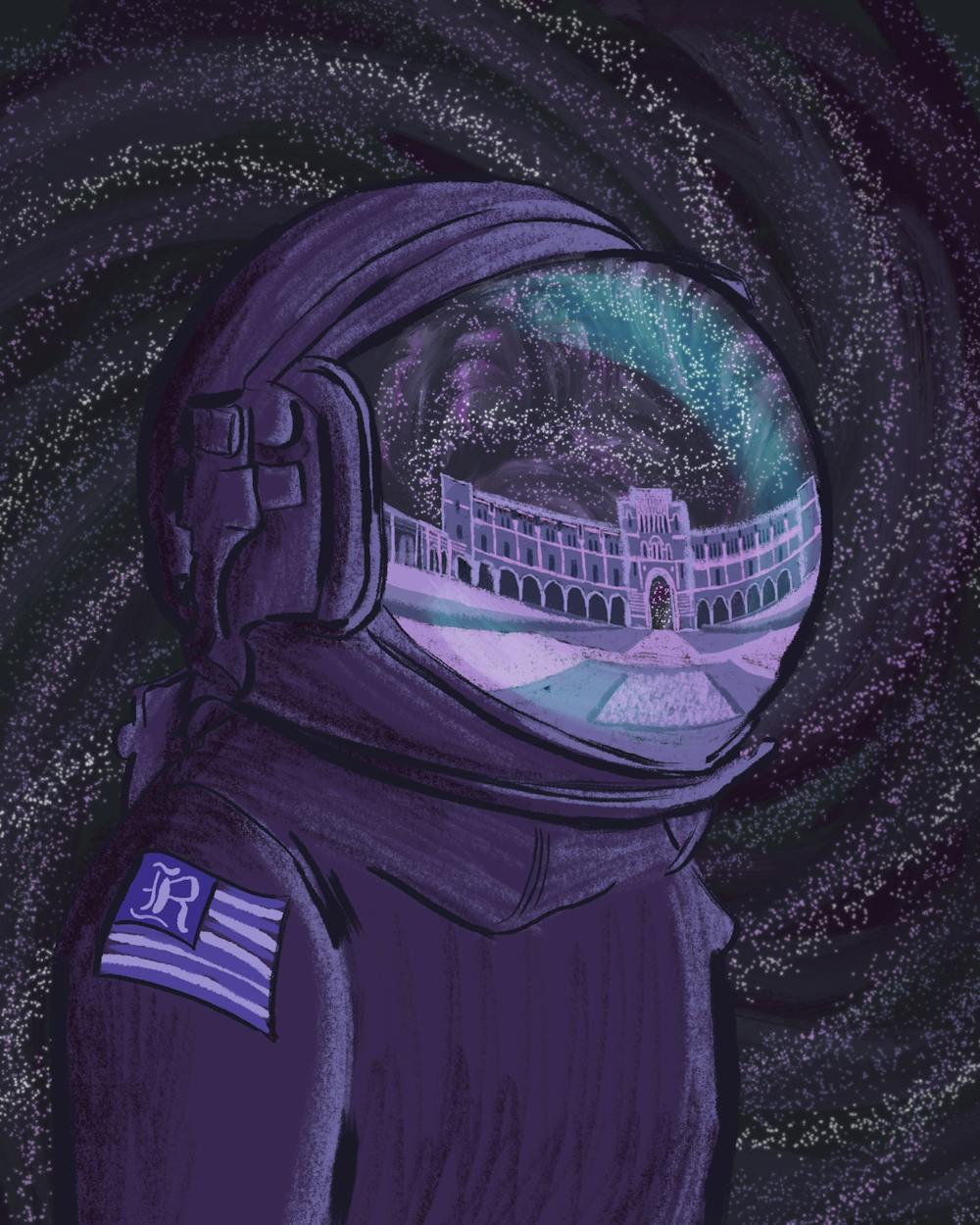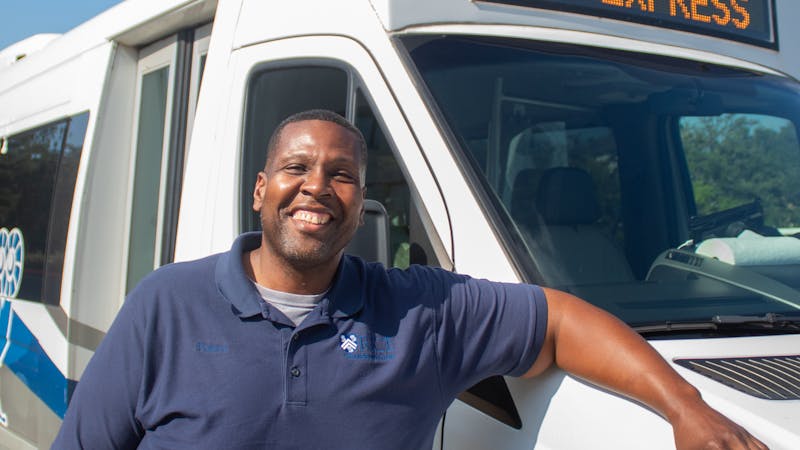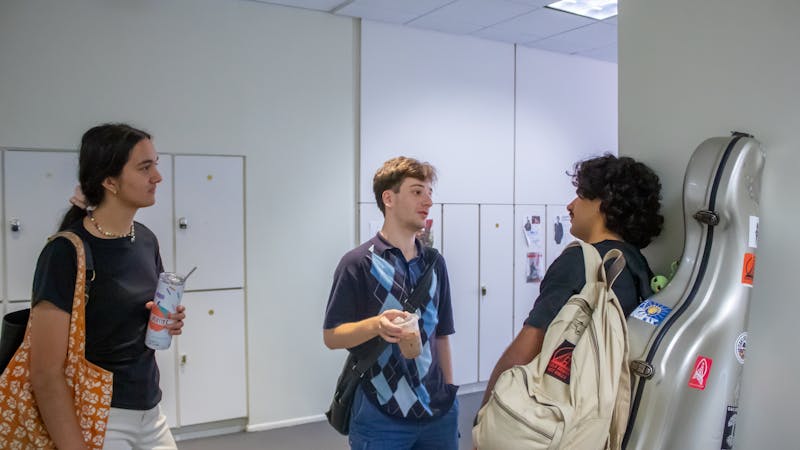Alumni point future engineers towards the stars

Bryan Mendoza / Thresher
Of the 30 mechanical engineers in John H. Scott’s 1982 graduating class at Rice, four would end up at the level of department head or higher at NASA. Scott himself was among them; now the principal technologist for power and energy storage, he noted that many of his classmates wound up in similar leadership roles.
Scott doesn’t attribute his class’s success to any particular focus from Rice on the aerospace industry. In fact, when he graduated, he had no idea he was going to pursue a career in aerospace. Instead, he said it has to do with what he sees as Rice’s ability to prepare future scientists and engineers for any path they choose.
“One thing about the Rice engineering curriculum is that it’s never been [aerospace] industry-focused. Most of the recruiting and networking works with the energy industry and still does,” Scott said. “The engineering curriculum trained you to work anywhere … and that’s from the focus on the fundamentals of physics and mathematics involved and from the focus on being able to write well.”
David Alexander, the director of the Rice Space Institute, said aerospace jobs require analytical minds.
“Preparing for a career at NASA is really just being a good scientist or a good engineer,” Alexander said. “It’s really just producing critical thinking problem solvers, and that’s what we do.”
He also added that any number of careers could contribute to human spaceflight and the aerospace industry more broadly.
“I often say that every company is a space company, whether they know it or not,” Alexander said. “If we’re going to do the things we’re trying to do in space, whether it be satellites observing the earth for the environmental monitoring or whether sending astronauts to the moon or to Mars, we need digital technologies, AI technologies, power technologies, we need people to communicate, now we’re having to think about space law … so there’s all sorts of really interesting aspects.”
Rachel Haubertson graduated in 2018 from Rice’s Professional Science masters program, a non-thesis curriculum which prepares students for work outside of academia. She emphasized the importance of these connections in landing her current position as the deputy system manager for the International Space Station exercise countermeasure systems, responsible for monitoring the technology astronauts use to avoid muscle atrophy while in space. She said the connections forged through the Rice program made it different from competing programs.
“A lot of [the professional masters] is connecting the students with people in industry and having small program numbers,” Haubertson said. “The benefit is just having access to those people and having them being so willing to give back and talk to the students.”
RSI puts on events such as the Spaceport lecture series, which brings in experts to talk about issues facing the aerospace industry today, along with a number of other events which introduce current Rice students to professionals. Haubertson remembered how helpful alumni-student mixers were when it came to building her network.
“[RSI] will often have events throughout the year for current students and alumni, which were the events that were super helpful as a student to make those connections,” Haubertson said. “Now it’s fun being on the other side of that, to be the alumni and to be somebody working in the field to hopefully help and serve as a mentor to the current students.”
Other aspects of the Rice experience also encourage students to go into the aerospace industry and prepare them for careers in the field. For undergraduate students in particular, Alexander pointed to Rice Center for Engineering Leadership as well as various student clubs and organizations in the field, such as the Rice Students for the Exploration and Development of Space chapter and Rice Eclipse, the rocketry team.
“We don’t just want to produce a scientist or an engineer or a social scientist or a humanist, we want to produce leaders in science, leaders in engineering, leaders in social sciences,” Alexander said. “That’s why we have all this other stuff around the classroom activity at Rice, we have the engineering leadership center, we have student organizations.”
Scott noted that when he was a student, those clubs did not exist, and he sees that change as a benefit to students.
“If anything helps us recruit into the space program from Rice, it’s those [clubs],” Scott said.
Rice and NASA also have a Space Act Agreement, which is an umbrella policy that allows for collaboration between the two entities. With both institutions in close proximity in Houston, Alexander said Rice is in a good spot to be involved in the future of space exploration.
“As we move forward, how the spaceport develops, how NASA develops some of these programs, they are going to need the kind of stuff that universities provide, and so that’s where we come in,” Alexander said. “We want to make sure our students who are interested get the opportunities, we want to make sure more students are interested … There’s an awful lot happening in space going forward and we’re in the right place to be a big part of that.”
More from The Rice Thresher

Over 1,000 students petition against new meal plan
When Konstantin Savvon opened the Housing and Dining email announcing the new unlimited meal plan, he was instantly concerned about the impact on off-campus students like himself.

Rice shuttle bus drivers reflect on changes and connections behind the wheel
Martine Stewart has spent the past year behind the wheel of Rice’s greater loop shuttle, circling the inner campus from the early morning to late afternoon. She said she has come to recognize many of her regular riders – not just their faces, but the exact spots where they wait to be picked up.

Music majors at Rice’s Shepherd School tackle busy schedules, future goals
Cirdan Vonnahme began playing the cello at 4 years old. After winning his first competition at 11 and debuting with an orchestra, he realized he wouldn’t mind playing the cello for life.

Please note All comments are eligible for publication by The Rice Thresher.